Fall 2021 Hybrid U.S.-ROK Next Generation Leaders Delegation
October 12–29, 2021
The October 2021 delegation of the U.S.-ROK Next Generation Leaders Program (NextGen) included ten rising Asia policy professionals with expertise in varying fields, including human rights, cyber, and technology. Led by John Park (Harvard University), with the assistance of NBR’s Melanie Berry, Julia Oh, Olivia Truesdale, Kanghee Park, and Darlene Onuorah, participants took part in both virtual meetings and in-person engagements in Washington, DC. The delegation met with NGO staff, foreign correspondents, and U.S. and South Korean government officials to discuss security issues and South Korean foreign policy.
During a kickoff meeting, participants were introduced to NBR staff and Dr. Park, learned about upcoming briefings, and had the opportunity to ask questions. Dr. Park previewed themes and issues related to U.S.-ROK security relations, ROK foreign policy, and domestic politics that would be discussed in the coming meetings.
The delegation’s first briefing with counterparts in Korea was with Sokeel Park, Country Director of Liberty in North Korea (LiNK), as well as Seongmin Lee, a Country Expert at Lumen and a North Korean defector. The briefing provided participants with an in-depth look into human rights situation in North Korea, the impact of sanctions and the Covid-19 pandemic on human rights there, international advocacy efforts, and the challenge of balancing nuclear security and human rights in policy toward North Korea.
In a briefing with South Korea’s Ministry of Foreign Affairs, participants met with Wieyoung Ha, Deputy Director General of the North American Affairs Bureau, to discuss diplomatic progress and recent developments in the U.S.-ROK alliance, South Korea’s response to China’s growing influence, and the Moon administration’s efforts to engage with North Korea and improve inter-Korean relations.
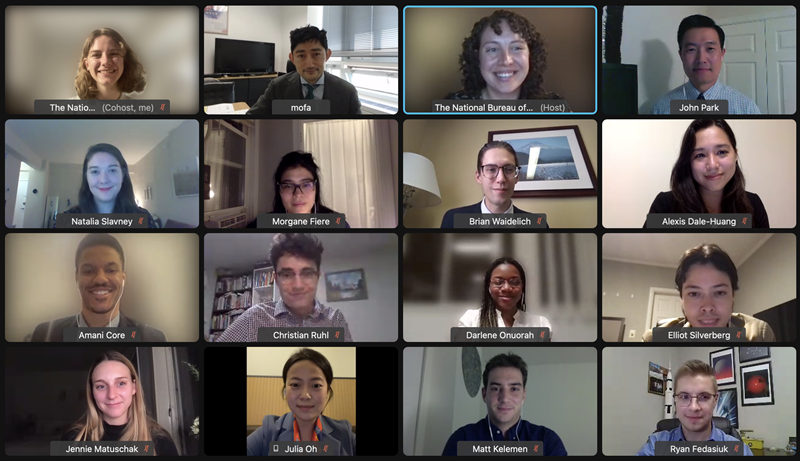
Participants meet virtually with Deputy Director General of MOFA’s North American Affairs bureau, Mr. Wieyoung Ha.
In the delegation’s first hybrid event, NextGen fellows met with foreign correspondents and representatives from the ROK Embassy in Washington at the Korea Foundation USA office. In a roundtable discussion with Hyun Young Park, Senior Washington Correspondent at JoongAng Ilbo, and Jung eun Lee, Washington Correspondent at Dong-a Ilbo, participants were able to gain insight on the media environment in South Korea, specifically the evolution of South Korean journalism and readership and coverage of U.S. issues and policies in Korean news. Following the correspondent roundtable, Wookyung Chung and Soyeong Yu, First and Second Secretary at the ROK Embassy, respectively, shared their personal experiences as diplomats in and outside of the United States. Both also discussed areas to enhance U.S.-ROK relations, South Korea’s defense capabilities and soft power influence, and the relationship between North and South Korea.
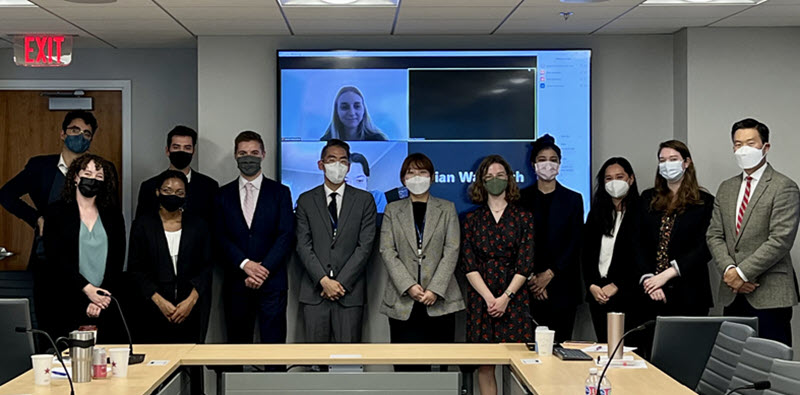
Fellows gather for a group picture with ROK Embassy representatives, Mr. Wookyung Chung and Ms. Soyeong Yu, after a hybrid briefing.
Participants had the opportunity to meet virtually with members of the ROK National Assembly in briefings with Kunyoung Youn of the Democratic Party of Korea and Jin Park of the People Power Party. Discussion topics touched on South Korea’s foreign policies and relations under the Moon administration, South Korea’s role in Indo-Pacific security, and the inter-Korean relationship. By speaking with lawmakers from both sides of the political spectrum, delegation participants gained an understanding of the foreign policy stances of the two major South Korean political parties ahead of the ROK presidential election in March 2022.
In a virtual Korea Mission Brief and robust Q&A session with U.S. Forces Korea (USFK) representatives, delegates learned about end of war declaration discussions, benefits and challenges of the U.S.-ROK combined command structure, conditions-based operational control (OPCON) transition between U.S. and ROK forces, and extended deterrence, as well as the DPRK’s missile capabilities and strategic thinking.
Lastly, participants attended an in-person briefing with former Deputy Secretary of Defense for East Asia, Colonel (ret.) Heino Klinck. The discussion centered on the U.S.-ROK alliance as a source of regional stability, security cooperation, and North Korea’s nuclear and missile threats.
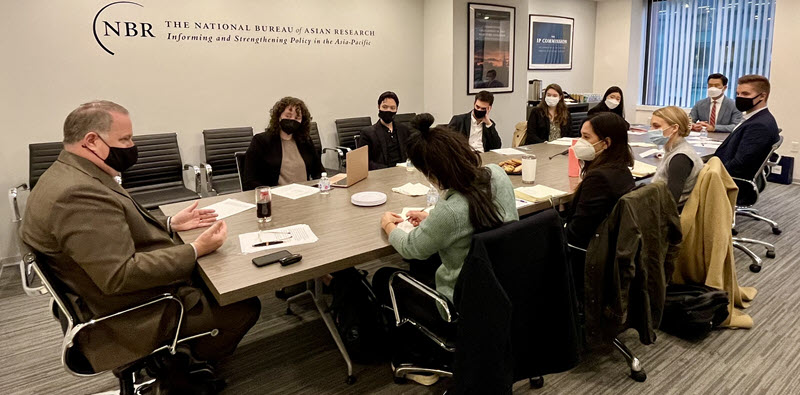
Fellows discuss the security environment around the Korean Peninsula with NBR Senior Advisor Col. (ret.) Heino Klinck.
In celebration of Korean culture, the delegation gathered at the Korean Cultural Center after the briefing with Col. Klinck to discuss public diplomacy and the Korean Wave, known as “Hallyu.” Participants also had the chance to observe art exhibits by Korean artists, including a musical performance, and received a Korea-themed gift bag with snacks and skincare products. Additionally, in early November, delegation participants based in Washington joined NBR and KF staff as well as Dr. Park for dinner at a Korean restaurant to strengthen relationships within the cohort and discuss takeaways from the program.
DELEGATION
Participants’ titles and institutional affiliations as of the time of the delegation.
Amani Core
Reconnecting Asia Intern, Center for Strategic and International Studies
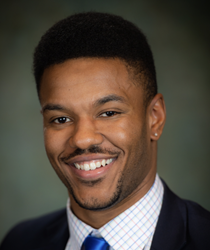
Amani Core currently works at the Center for Strategic and International Studies’ Reconnecting Asia Project, where he researches physical and digital infrastructure projects throughout Eurasia and the Indo-Pacific. Previously, he notably held an internship at Albright Stonebridge Group’s China practice. Prior to that, Mr. Core served as a Chinese faculty at Phillips Academy Andover, where he also presented original research on the impact of racial identity on black professionals’ experiences abroad. Mr. Core received his bachelor’s degree from Middlebury College in Chinese and Philosophy. He studied abroad in China at the Beijing Normal University and the Dalian University of Technology; he achieved the latter as a recipient of the U.S. State Department-sponsored Critical Language Scholarship. He is proficient in Mandarin Chinese. Mr. Core proudly serves as a member of both the National Association for Black Engagement in Asia (NABEA) and the Black China Caucus (BCC).
Alexis Dale-Huang
Research Assistant, U.S.-China Economic and Security Review Commission
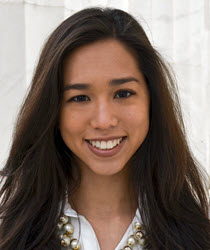
Alexis Dale-Huang is a Research Assistant for Security and Foreign Affairs at the U.S.-China Economic and Security Review Commission. She most recently worked as an intern at the Brookings Institution and was previously a James C. Gaither Junior Fellow at the Carnegie Endowment for International Peace. Ms. Dale-Huang has also worked as a research assistant at the University of Southern California Korean Studies Institute and as a research intern at the National Defense University’s Center for the Study of Chinese Military Affairs. As a Boren scholar, Ms. Dale-Huang lived and studied abroad in China and is proficient in Mandarin Chinese. She received her BA in International Relations and East Asian Area Studies from the University of Southern California and her MA in Asian Studies from Georgetown University’s School of Foreign Service.
Ryan Fedasiuk
Research Analyst, Center for Strategy and Emerging Technology
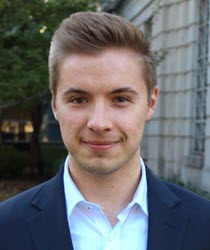
Ryan Fedasiuk is a research analyst at Georgetown’s Center for Security and Emerging Technology (CSET). His work explores military applications of artificial intelligence, as well as China’s efforts to acquire foreign technology. Prior to joining CSET, Ryan worked at the Center for Strategic and International Studies, the Arms Control Association, the Missile Defense Advocacy Alliance, and the Council on Foreign Relations, where he primarily covered aerospace and nuclear issues. His writing has appeared in Foreign Policy, Defense One, the Jamestown Foundation’s China Brief, and CFR’s Net Politics. Ryan holds a BA in International Studies and a minor in Russian from American University (cum laude, Phi Beta Kappa). He is enrolled as an MA candidate in the Security Studies Program at Georgetown University, where he also studies Chinese.
Morgane Fiere
Analyst, The Asia Group

Morgane Fiere is an Analyst at The Asia Group supporting the firm’s defense practice. She was previously a Research Intern at the Project 2049 Institute and a research assistant for the George Washington University Program on Extremism. Ms. Fiere holds a master’s degree in Security Studies from Georgetown University’s School of Foreign Service and a bachelor’s degree in Arabic and Politics from the School of Oriental and African Studies at the University of London.

Matthew Kelemen
Analyst, U.S. Department of Defense
Matthew Kelemen is an analyst for the Department of Defense. Before joining DoD, he was a management consultant with Booz Allen Hamilton, where he supported the stand-up and activation of the US Space Force, the first military service branch created since 1947. He was a Fulbright Korea grantee, through which he received a master’s degree in Korean Studies from Yonsei University GSIS, where he studied the ways in which the first American travelers wrote and portrayed Korea. He received his BA in East Asian Area Studies from the University of Pennsylvania and wrote his honors thesis on the historiographical construction of women’s agency in colonial Korea.
Jennie Matuschak
Research Assistant, Center for a New American Security

Jennie Matuschak is a Research Assistant for the Defense Program at the Center for a New American Security (CNAS). Her research areas include wargaming, particularly potential future conflicts in the South China Sea, and U.S. defense strategy in the context of a rising and increasingly aggressive China. She also focuses on defense strategy and posture in the Middle East. Previously, Ms. Matuschak served as a Joseph S. Nye, Jr. Intern for the Middle East Security Program at CNAS. Prior to joining CNAS, she worked as a research intern for the Enabling Peace in Iraq Center (EPIC) where she monitored the security, political, economic, and humanitarian affairs in Iraq. She has also interned with the Middle East Policy Council and the House of Representatives. Ms. Matuschak graduated summa cum laude and Phi Beta Kappa from Bucknell University with a BA in History and a minor in Arabic. In 2018, she studied Arabic and Middle Eastern politics in Amman, Jordan. She is proficient in Arabic, Spanish, and French.
Christian Ruhl
Global Order Program Manager, Perry World House
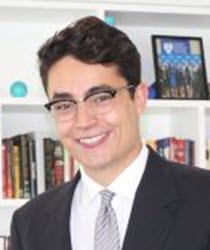
Christian Ruhl is the Global Order Program Manager at Perry World House, the University of Pennsylvania’s hub for international policy and global affairs. He manages the research theme on “The Future of the Global Order: Power, Technology, and Governance,” which examines implications of changing global power dynamics, impacts of new and emerging technologies, and contributions of governance institutions for the future of international cooperation. Christian is also a 2021 Nuclear Scholar with the Center for Strategic and International Studies Next Generation Nuclear Network. Before joining Perry World House, Mr. Ruhl studied at Williams College and the University of Cambridge. At Cambridge, he was a Herchel Smith Fellows for two master’s degrees, one in History and Philosophy of Science and one in International Relations and Politics, with dissertations on Early Modern submarines and limited nuclear war theory of the early Cold War.
Elliot Silverberg
International Trade Specialist, U.S. Department of Commerce

Elliot Silverberg’s work and research focuses on the intersection of geopolitics, trade, and technology issues in the Indo-Pacific. He has five years of experience in strategic advisory, government relations, journalism, and think tanks across Tokyo and Washington. Currently he is an international trade specialist in the U.S. Department of Commerce’s Office of Digital Services Industries. Previously he was an analyst at Access Partnership, a global tech policy consultancy. He has interned or worked at the Center for Strategic and International Studies, The Asia Group, the Asia Pacific Initiative, the Tokyo Foundation for Policy Research, and Hogan Lovells LLP. He was also a non-resident James Kelly fellow at the Pacific Forum and a Michael Huffington fellow at Georgetown University’s Institute for the Study of Diplomacy. His work has been published or featured in Foreign Policy, the Wall Street Journal, War on the Rocks, the Hill, South China Morning Post, and the Japan Times, among others. Elliot has an MA in Asian Studies from Georgetown’s School of Foreign Service.
Natalia Slavney
Research Associate, Stimson Center

Natalia Slavney is a Research Associate at the Stimson Center and Assistant Editor for “38 North,” a web journal that provides policy and technical analysis on North Korea. Prior to joining Stimson, she was a Graduate Student Research Assistant at the former US-Korea Institute at the Johns Hopkins School of Advanced International Studies (SAIS). Her research experiences and interests include humanitarianism and aid, international law, human rights, inter-Korean relations, US-DPRK relations, the North Korean economy, and access to political rights and civil liberties in the two Koreas. Ms. Slavney holds a BA in Anthropology, Asian Studies, and International Studies from UW-Madison, and an MA in International Relations and International Economics from SAIS.
Brian Waidelich
Research Scientist, CNA
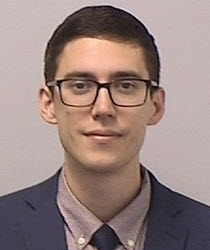
Brian Waidelich is a Research Scientist at the China and Indo-Pacific Security Affairs Division of CNA, a nonprofit research and analysis organization located in Arlington, VA. His research interests include politics and security in East Asia, with a focus on maritime and space issues involving China and Japan. Mr. Waidelich’s recent publications include “The People’s Liberation Army in 2018: Education and People’s War” (US Army War College), “Japan’s New Defense White Paper Elevates Security Concerns Over Taiwan Strait” (CNA), and “China’s commercial space sector shoots for the stars” (East Asia Forum). He attended graduate school at Georgetown University, where he received an MA in Asian Studies with a concentration in Politics and Security of East Asia. Mr. Waidelich also previously studied at George Mason University (BAs in Chinese and English) and at the Nanjing University of Science and Technology (study abroad). He speaks Chinese, Japanese, and Spanish.
John Park
(Senior Expert)
Director, Korea Project and Adjunct Lecturer in Public Policy, Belfer Center, Harvard Kennedy School
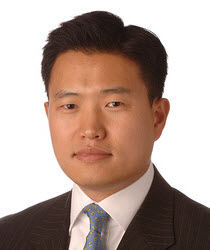
John Park is Director of the Korea Project and Adjunct Lecturer in Public Policy at the Harvard Kennedy School’s Belfer Center. He is also a Faculty Affiliate with the Project on Managing the Atom. Dr. Park’s core research projects focus on the political economy of the Korean Peninsula, nuclear proliferation, economic statecraft, Asian trade negotiations, and North Korean cyber activities.
Dr. Park was the 2012–2013 Stanton Nuclear Security Junior Faculty Fellow at MIT’s Security Studies Program. He previously directed Northeast Asia Track 1.5 dialogues at the U.S. Institute of Peace in Washington, D.C. He advises Northeast Asia policy-focused officials in the U.S. government.
Dr. Park worked at Goldman Sachs, where he specialized in U.S. military privatization financing projects. He earlier worked in Goldman Sachs’ M&A Advisory Group in Hong Kong and The Boston Consulting Group’s Financial Services Practice in Seoul. Dr. Park is a commentator on Asian geopolitical issues on CNN, BBC, CNBC, Fox Business, Fox News, and Bloomberg TV. He also advises institutional investors on geopolitical risk in Asia-Pacific markets.
His key publications include: “Stopping North Korea, Inc.: Sanctions Effectiveness and Unintended Consequences,” (MIT Security Studies Program, 2016 — co-authored with Jim Walsh); “The Key to the North Korean Targeted Sanctions Puzzle,” the Washington Quarterly (Fall 2014); “Assessing the Role of Security Assurances in Dealing with North Korea” in Security Assurances and Nuclear Nonproliferation (Stanford University Press, 2012); “North Korea, Inc.: Gaining Insights into North Korean Regime Stability from Recent Commercial Activities” (USIP Working Paper, May 2009); and “North Korea’s Nuclear Policy Behavior: Deterrence and Leverage,” in The Long Shadow: Nuclear Weapons and Security in 21st Century Asia (Stanford University Press, 2008).
His current research focuses on the North Korean regime’s accumulated learning in evading sanctions. Dr. Park received his MPhil and PhD from the University of Cambridge. He completed his pre-doctoral and postdoctoral training at the Harvard Kennedy School’s Belfer Center. Dr. Park has testified on North Korea before the Senate Banking Committee and the House Financial Services Committee.
Melanie Berry
(Program Coordinator)
Senior Project Manager, Political and Security Affairs, The National Bureau of Asian Research
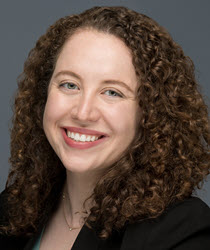
Melanie Berry is a Senior Project Manager with the Political and Security Affairs group at NBR. In this position, she manages projects related to U.S. engagement with allies and partners in the Indo-Pacific, focusing on Northeast Asia and Oceania. She previously worked as an intern with the Political and Security Affairs group from 2017 to 2018. Prior to joining NBR, Ms. Berry was a Senior Associate at The Asia Group, where she provided clients with analysis and advice on Japan’s domestic political dynamics, regional trade and defense strategy, and market and regulatory trends, as well as U.S.-Japan alliance relations. She also worked in Japan as an intern at the Asia Pacific Initiative in Tokyo and as an Assistant Language Teacher with the Japan Exchange and Teaching Program in Gunma Prefecture. Ms. Berry holds an MA in Asian Studies with a concentration in Politics and Security from Georgetown University’s Edmund A. Walsh School of Foreign Service. She also graduated from the University of Virginia with a BA in History and Japanese Language and Literature and attended the Kyoto Consortium for Japanese Studies at Doshisha University in Kyoto, Japan.
Julia Oh
(Group Rapporteur)
Associate, The National Bureau of Asian Research
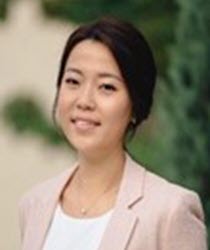
Julia Oh is an Associate at National Bureau of Asian Research (NBR) based in Seoul, South Korea and a Program Manager at the International Republican Institute, Korea. At NBR, Julia provides guidance on Korea Programming, business development, and strategic relationship building. She was previously a resident fellow at NBR’s DC office. Prior to joining NBR, she worked for the ROK government in London, the Korea Trade-Investment Promotion Agency. She interned for one year in a separate research role for the Korea Economic Institute of America in DC, and the United Nations office for Disarmament Affairs in NYC. While completing her MA, she contributed to the Centre for Science and Security Studies (CSSS) in London. Julia holds BA in Communications from University of Delaware and an MA in International Relations from the Department of War Studies at the King’s College London, where her dissertation focused on the role of North Korea’s nuclear weapons program in domestic propaganda.
Olivia Truesdale
(Program Assistant)
Project Associate, Political and Security Affairs, The National Bureau of Asian Research

Olivia Truesdale is a Project Associate with the Political and Security Affairs group at NBR. In this position, she supports the Strategic Asia program, the Maritime Awareness Project, the U.S.-ROK Next Generation Leaders program, research, grant writing, and events. Ms. Truesdale was previously an intern for PSA. Prior to joining NBR, Ms. Truesdale interned at the U.S. Embassy in Seoul, South Korea, and studied abroad at Yonsei University. She has been awarded two Critical Language Scholarships to study Korean. Ms. Truesdale graduated summa cum laude and Phi Beta Kappa with a BA in foreign languages from Scripps College. She wrote her senior thesis in Spanish about how global and local cultural flows interact. She specifically explored two cases: the representation of masculinity in a Korean drama and the representation of Islam in a Spanish telenovela. Ms. Truesdale was previously an editor at the Claremont Journal of International Relations, the student-run IR journal of the Claremont Colleges. She speaks Korean and Spanish at an advanced level and has an intermediate proficiency in Italian.
Kanghee Park
(Program Assistant)
Korea Foundation Research Fellow, Political and Security Affairs, The National Bureau of Asian Research
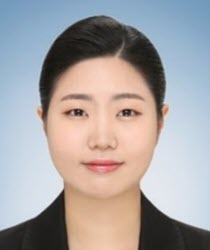
Kanghee Park is a Korea Foundation Research Fellow with the Political and Security Affairs group at NBR. Prior to joining NBR, Ms. Park was an intern at the East Asia Foundation in South Korea, where she provided support for data collection, translation, seminars and conferences, and administrative tasks. Ms. Park holds an MA in International Politics with a concentration in China’s people-to-people exchanges from Fudan University. She completed the Chinese-taught language master’s program as part of a government scholarship. She also holds a BA in Chinese Political Economy from Hankuk University of Foreign Studies (HUFS), South Korea. During her undergraduate program, she participated in the HUFS Chinese Studies program at Peking University and the Chinese Language Program at Capital Normal University, where she received a Beijing Municipal Government Scholarship. Her research interests are Chinese politics and diplomacy.
Darlene Onuorah
(Program Assistant)
Intern, Political and Security Affairs, The National Bureau of Asian Research
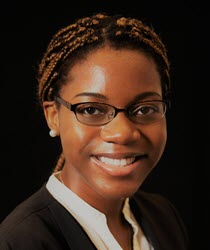
Darlene Onuorah is an intern with Political and Security Affairs at NBR. She supports various projects such as the Strategic Asia Program, the U.S.-ROK Next Generation Leaders Program, and grant proposals. Prior to joining NBR, Ms. Onuorah was a Japan Security Policy intern for the Stimson Center. She worked for the Embassy of Japan in the Japan Exchange and Teaching (JET) Program office and has held legislative and policy internships back in her home state of Texas. Ms. Onuorah holds a master’s degree in international affairs with a concentration in U.S. foreign policy from the George Washington University and a bachelor’s degree in Global Studies from St. Edward’s University.



